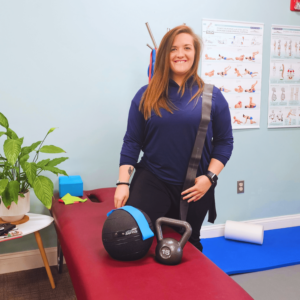“According to the American Heart Association (AHA), nearly half of all adults in the United States have cardiovascular disease. It caused more deaths in 2016 than previous years, despite rates of cardiovascular deaths having declined worldwide.”
This, despite all the billions of dollars spent on diagnosis and treatment. Recent research is showing that many of these treatments really aren’t effective, despite their enormous financial and emotional costs. What’s the deal?
The problem is that our medical system focuses mostly on detection and treatment. If you go to a medical doctor or surgeon, they are most likely going to use medicine and surgery. This can certainly be absolutely necessary and life-saving in an emergency. But consider the fact that most of these “emergencies,” like blocked arteries and heart failure, have been developing for years!
So what can you do to help prevent these things?
STRESS MANAGEMENT
Chronic stress is a huge factor contributing to a variety of health issues, and cardiovascular disease is no exception. Did you know that there is an actual condition called “Broken Heart Syndrome” that can result after an episode of severe emotional stress?
Stress sends your body into “fight or flight” mode – leading to increased blood pressure and chronic inflammation. Both of these are known risk factors for heart disease and many other chronic health issues.
Stress is unavoidable, but you can manage your reaction to it with some simple habits.
- Meditation has been shown to decrease blood pressure and inflammatory markers. There are dozens of meditation apps out there, and just a few minutes can calm you down and lower your blood pressure.
- Yoga, especially practices that involve gentle, relaxing movements coupled breathing awareness
- BREATHE! I cannot stress this enough (pun intended!) A few cycles of deep, full body inhalation and exhalation can reduce your heart rate and blood pressure. You can do it anywhere, anytime.
Nutrition
Every week we are bombarded with a “new study” or “best diet” or the latest list of “superfoods.” I’m a big fan of the “KISS” principle — keep it simple, silly! I like Michael Pollan’s suggestion: “Eat real food. Not too much. Mostly plants.” This is a good start for most people.
Overly processed grains, food additives and dyes, and excess and artificial sweeteners can all contribute to inflammation and obesity, especially in the presence of other stressors. And as we mentioned above, inflammation is everything when it comes to heart health.
Many people have sensitivities to common foods that are often considered “healthy” like dairy, eggs, soy, and nuts. If you are eating what you think is a healthy diet, but are still lacking energy, or are constantly feeling unwell, you should consider getting additional advice from a licensed professional who understands these issues and can guide you in the right direction.
The bottom line is that you may not be able to control all the stresses in your life, but you certainly have some control over what you are feeding your body! Eat your fruits and veggies, add in some good quality proteins and fats, and you’re already moving in the right direction.
Get Moving!
Exercise – of any type – can decrease stress hormones, increase endorphins, make you breathe, and generally make you stronger. You don’t have to go to the gym or take classes to exercise. Simple movements, a few minutes at a time can easily add up
If you’re stuck at a desk all day, try some mini-workouts throughout the day. Every hour or so, get up and do
- 10 squats, or
- 10 lunges, or
- 10 high-knee marches, or
- 10 big arm circles, or
- 10 standing or seated “cat/cow”
- 10 pushups on your desk or countertop, etc,
Current recommendations for exercise are 20-30 minutes per day. 5 minutes x 5 times a day = 25 minutes of exercise. Every minute of which can decrease stress and improve your blood flow and pressure!
Another tip to get moving – drink lots of water. This will ensure that you get up and move at regular intervals!
Little changes over time make big differences; that goes for both bad and good habits. If changing any of these things seems overwhelming, please call us so we can help you set some simple goals to get started!





